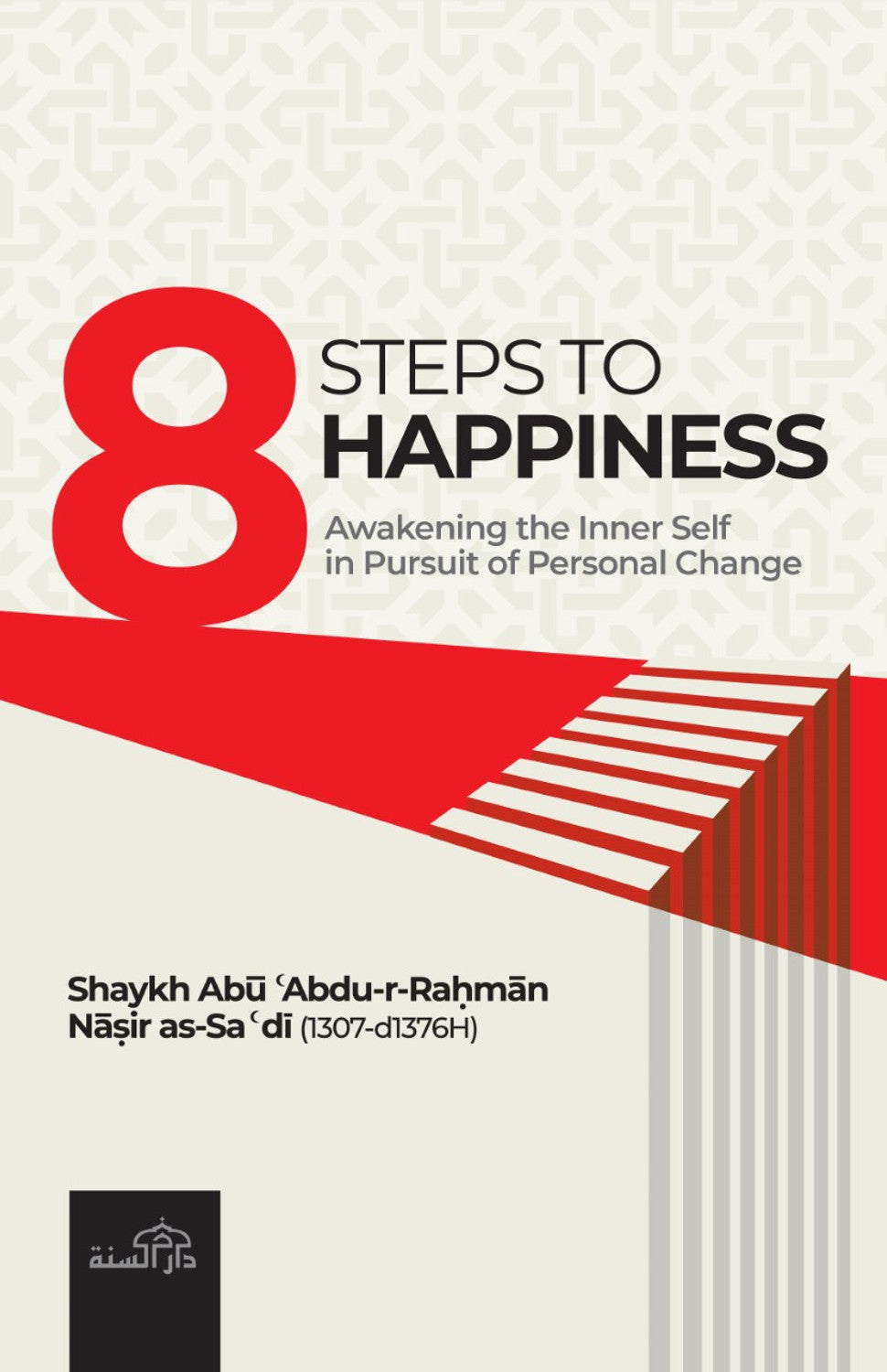8 Steps To Happiness | Shaykh Abu Abdur-Rahman Nasir Al-Sadi
8 Steps To Happiness | Shaykh Abu Abdur-Rahman Nasir Al-Sadi
Publisher:
Dar As Sunnah Publications
Author:
Shaykh Abdur-Razzaaq Al-Abbaad
Language:
English
Binding:
Soft Cover
Pages: 80
Size: A5 |5.8 x 8.3 in| 14.8x 21 cm
Couldn't load pickup availability

Collapsible content
Description of Book
Discover 8 Steps To Happiness by Shaykh Abu Abdur-Rahman Nasir Al-Sadi, available from all reputable bookstores starting December 16th, 2019, Insha'Allah. While many strive for happiness, the true essence and source of it remains elusive to most. Rather than a destination, it requires internal qualities and a certain state of mind. It cannot be bought, but rather cultivated through developing one's character and following a well thought-out plan. As the Messenger of Allah (peace and blessings be upon him) stated, those destined for happiness will easily perform actions of happy people. Therefore, by adopting the attitudes of happy individuals, one can recognize and attain true happiness. This journey requires a change in mindset, moving away from trivial issues and adopting a more positive and optimistic worldview. In this concise summary, Shaykh Nasir Al-Sa'di outlines eight ways to achieve happiness and eliminate its opposites - sadness, grief, and anxiety. He
Publisher
Dar As Sunnah Publications
Author
- Shaykh Abdur-Razzaaq Al-Abbaad
Sample Pages - Content
Page : 01
8 STEPS TO HAPPINESS Awakening the Inner Self in Pursuit of Personal Change Shaykh Abu 'Abdu-r-Raḥmān Nāşir as-Sa'di (1307-d1376H) 縮
Who is Shaykh Abdur-Razzaaq Al-Abbaad?
The author is a respected Islamic scholar known for his deep understanding of Qur’an and Sunnah. His works focus on strengthening faith (Eeman), guiding Muslims to avoid causes of weak Iman, and inspiring believers to remain firm on the straight path through knowledge, worship, and righteous action.

